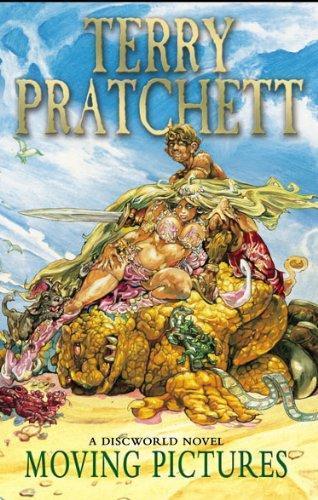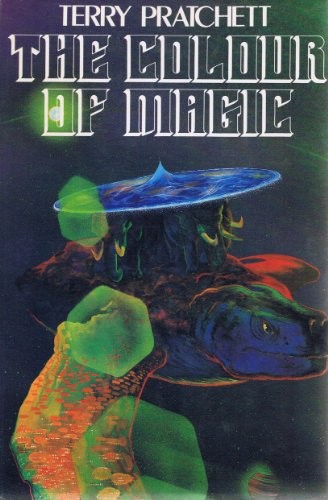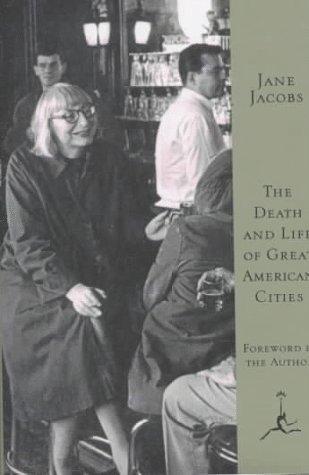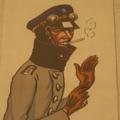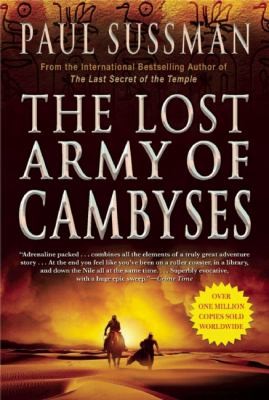Great story and artwork
User Profile
"Why, yes, I am still upset that the Library of Alexandria burnt down"
This link opens in a pop-up window
Murf's books
2025 Reading Goal
83% complete! Murf has read 20 of 24 books.
User Activity
RSS feed Back
Murf finished reading Klaus by Grant Morrison
Murf finished reading The Wages of Destruction by Adam Tooze
Murf started reading The Wages of Destruction by Adam Tooze
Murf started reading The Last Secret of the Temple by Paul Sussman
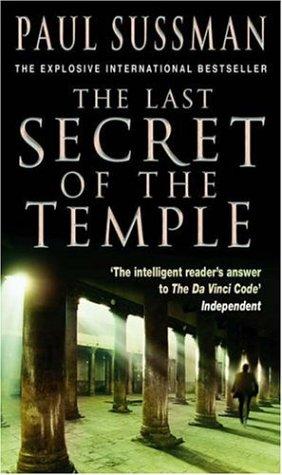
The Last Secret of the Temple by Paul Sussman
Pushing the Dan Brown buttons - a rip-roaring, edge-of-your-seat adventure thriller.Jerusalem, 70 AD. As the legions of Rome besiege the …
Murf rated Wings on My Sleeve: 5 stars
Murf quoted Wings on My Sleeve by Captain Eric Brown
The first was in February 1956, when one evening just as the last aircraft were returning to the airfield we had a phone call from a lady schoolteacher near Fishguard to say that she could see a flying saucer. My scepticism almost made me laugh outright as I listened to her, but I promised that I would ask one of the returning aircraft to have a look. Jokingly we told one of our pilots over the radio what had been reported. To our surprise, he said, ‘Yes, and I can damn’ well see it, too.’ Again I was anything but convinced, especially as he said it was rapidly moving out of his sight. Minutes later one of our air traffic controllers called down to my office to say that he could see it with the naked eye from the control-tower roof. I shot upstairs and saw what did look like a saucer in the air. I decided it was interesting enough to go and have a look at it, and leapt off in a Vampire to see what I could make of it. I climbed to about 40,000 feet but the shape was still above me and moving fairly fast, and in the now half-light of dusk I could not identify it. But I am certain it was not a cosmic research balloon, which was the only tangible thing I thought it might be. The shape continued to be identified along the entire Bristol Channel coast that evening without any explanation of it ever coming out. Where I once scoffed - I now have an open mind.
— Wings on My Sleeve by Captain Eric Brown (Page 240 - 241)
UFO/UAP sighting. Even Winkle Brown has seen one.
Murf quoted Wings on My Sleeve by Captain Eric Brown
Absence of propellers in a jet has enabled tighter flying in formation to be done, and has also improved the safety factor slightly - I have been nudged in my elevator by my line-astern man without any drastic effects. That such a thing has more serious results with piston-engined planes was demonstrated in a naval air display at RNAS Eglinton in Northern Ireland when, during a vertical climb, the box man in his Sea Fury chewed his leader’s tail off with his propeller. The formation disappeared into cloud still going vertically upwards, with debris showering off the stricken plane. The leader then reappeared on the end of a parachute and the box man made a spectacular wheels-up crash landing on the runway. The Irish cheered this magnificent stunt to the echo, and there were several requests to repeat it on next year’s show.
— Wings on My Sleeve by Captain Eric Brown (Page 237)
Murf quoted Wings on My Sleeve by Captain Eric Brown
We got a signal from the Air Attaché in Dublin to say that about two weeks previously a Junkers 88 carrying the latest German radar gear had force-landed in a field north of Dublin at five o’clock in the morning. The Irish were prepared to let us collect this plane, provided we arrived in an aircraft carrying civilian markings, and wore civilian clothes. I was to lead the party to go. The first condition was impossible, as there was not a single aeroplane in all Britain with civilian markings after six years of total war. The second was flouted by our Group Captain, who insisted that for prestige value we went over in uniform, carrying our civvies in suitcases. On 2nd June 1945 we landed at the Eire Air Corps field of Gormanston, a little grass field where the men lived in tents, and where the Junkers had put down. There it was, standing forlornly on the field. In our martial glory we got a very cold reception from the Irish. Icily we were told to go at once into the CO’s office and change. But no sooner had we done this, than the same unfriendly characters were all over us, slapping us on the back, pumping our hands, filling us up with Guinness. We spent a hilarious night in Dublin, before interrogating the German crew next morning.
They had a strange story to tell. The pilot was a German South African, who had had, he said, no interest whatsoever in the war, being very comfortably settled with his family in South Africa, but had been forced to return to Germany to fight after threats to the safety of his children if he did not. This was the way the Gestapo operated in the ex-German colonies. As the war was drawing to its close and the Germans were retreating, their CO had got all his pilots together and said to them, ‘Look, it’s all over, we’re finished. We might as well get out of here. Every pilot can have his aircraft and full petrol tanks. He can take anybody else he chooses aboard, and clear out wherever he wants. Personally, I’m off to Sweden’. Four of the pilots decided to make for Eire, some for Sweden, others for Spain. The four for Eire set off in formation. Over Manchester flak split them up and one of them was shot down. Our man did not see the other two planes again, and they were almost certainly lost in the Irish Sea in the foul weather then prevailing. He flew above the filthy weather and picked up the coast of Ireland on his radar, broke cloud at 400 feet in the pouring rain, flew south down the coast until he saw the field at Gormanston, and landed with great skill in the half-light of five in the morning on the wet grass of a landing strip only 900 yards long. Now he was longing to go back to South Africa and become a man of peace again. We examined his radar, ran up the engines, and just managed to squeeze out of the little field. We headed for Anglesey, and there a flight of Spitfires picked us up and escorted us to Farnborough, just in case there were any suspicious gunners about.
— Wings on My Sleeve by Captain Eric Brown (Page 101 - 102)
Murf quoted Wings on My Sleeve by Captain Eric Brown
Squadron Leader Tony Martindale, was a big, powerful six-footer. One day he dived to 0.92, at which point he was pulling about 100lb on the control column to recover, when the over-speeding propeller became detached, together with its reduction gear. The resultant loss of weight at the front end made the Spitfire tail-heavy and it zoomed almost vertically upwards, blacking out the pilot under a force of 11‘g’. When he recovered his sight again Marty found himself back up at about 40,000 feet with his straight-winged aeroplane now having acquired a very slightly swept-back look. It speaks volumes both for the pilot and the Spitfire that Marty somehow managed to land it back at Farnborough on its wheels, with the valuable camera records intact. The speed he reached in that dive is still the highest ever registered by a piston-engined aircraft.
— Wings on My Sleeve by Captain Eric Brown (Page 74)
Murf quoted Wings on My Sleeve by Captain Eric Brown
Early in 1944 Lt.Gen. Jimmy Doolittle, who had recently taken over command of the 8th USAAF visited the RAE to ask for a series of hands-on tests on the three USAAF escort fighters, the P-38H Lightning, P-47C Thunderbolt and the P-51B Mustang. He was worried about the heavy losses suffered by the fighters on high cover over Flying Fortresses. Tests were required into the handling behaviour of the aircraft at high speeds up to their tactical (manoeuvring) and critical (loss of control) Mach numbers. The tests revealed that the Lightning and Thunderbolt fell well short of the tactical Mach numbers of the Me 109 and the Fw 190. As a result of the RAE report Doolittle asked to be supplied solely with P-51s which proved to be the finest fighters in the European war theatre.
This American air force had started to suffer worrying escort fighter losses when the fighters on high cover over the Flying Fortresses dived down to intercept German fighters attacking the bombers and lost control before they could engage the enemy in combat.
It must be remembered that in the Second World War, Machmeters were not fitted to any Allied or enemy operational aircraft, but only to a few research aircraft. We knew from tests at RAE on captured German fighters that the Me 109 and Fw 190 both had a tactical Mach number of 0.75, so that figure was the name of the combat game at 30,000 feet. The tests we conducted on the American fighters revealed that the Lightning and Thunderbolt fell well short of that figure, with tactical Mach numbers of 0.68 and 0.71 respectively. However, the Mustang with its laminar-flow wing achieved 0.78 tactically, and soon after receiving these results Doolittle asked that his Force be supplied with only P-51s. Subsequently the Merlin-engined Mustang proved to be the finest escort fighter in the European war theatre.
— Wings on My Sleeve by Captain Eric Brown (Page 71 - 72)
Fascinating detail on the effects of approaching the sound barrier with high-performance propeller aircraft.
Murf quoted The Lost Army Of Cambyses by Paul Sussman
‘With books,’ he used to say, ‘even the poorest hovel in the world is transformed into a palace. They make everything seem so much more bearable.’
— The Lost Army Of Cambyses by Paul Sussman (Page 62)
Murf finished reading Armageddon by Max Hastings

Armageddon by Max Hastings
Armageddon is the epic story of the last eight months of World War II in Europe by Max Hastings--one of …
Murf finished reading Wings on My Sleeve by Captain Eric Brown
Murf started reading Armageddon by Max Hastings

Armageddon by Max Hastings
Armageddon is the epic story of the last eight months of World War II in Europe by Max Hastings--one of …
